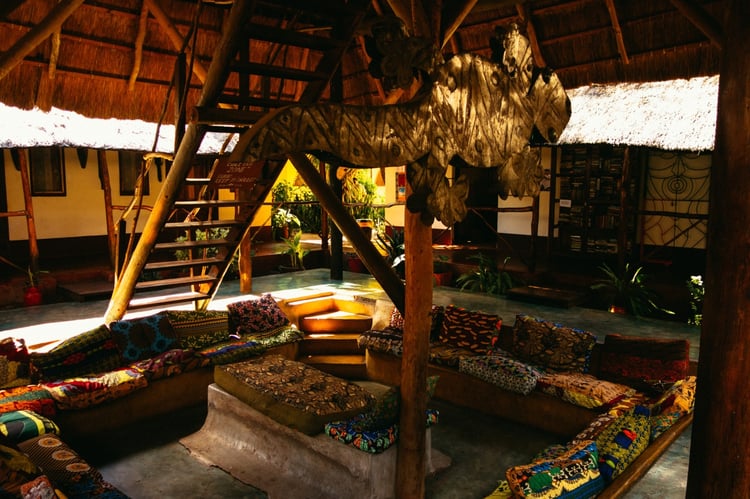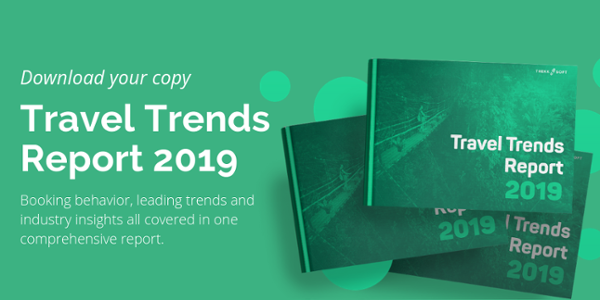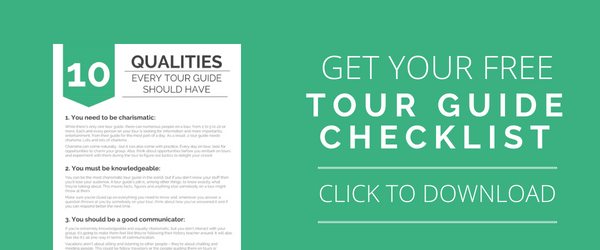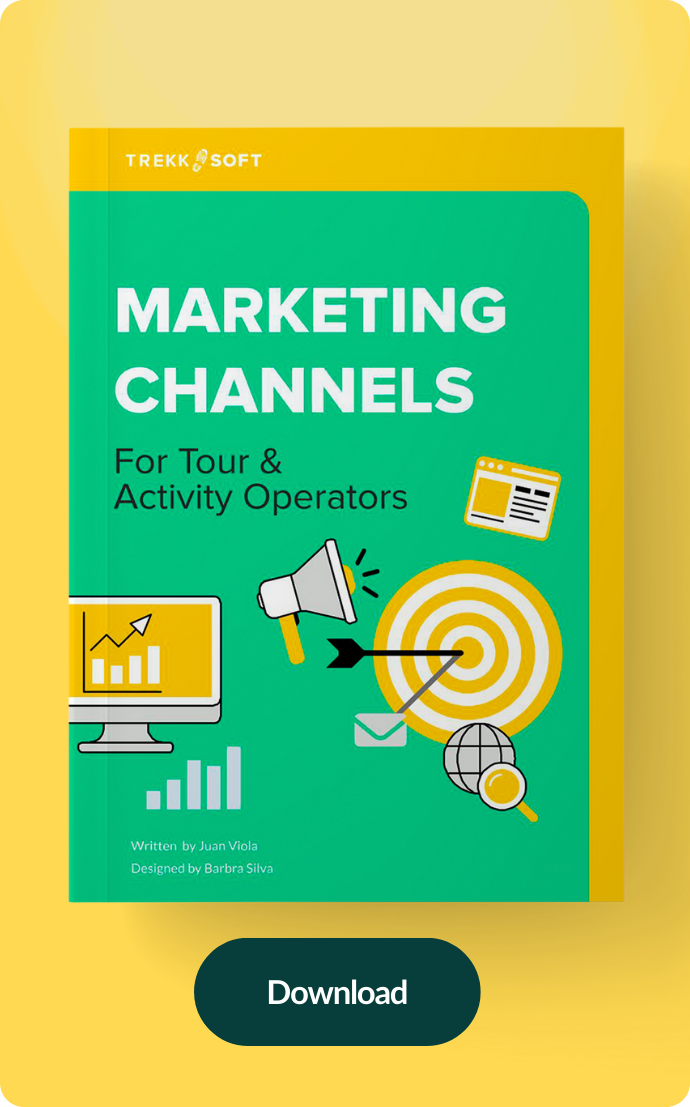"The future is not in sedentary travel", says Afar, and it's not in cookie-cutter package tourism either. Consumer attitudes are changing, and people want to "travel better, on a deeper emotional and more personal level", explains The Rise of Experiential Travel Report by Skift + Peak.
Experiential travel is a form of tourism in which people focus on experiencing a country, city or particular place by connecting to its history, people and culture. And it's growing fast.
The task for tour operators is to understand how a travel experience can truly change us and provide customers with a new, unique, and authentic way to understand our world. In this article we delve into the trend, what it means for tourism, and how your company can respond.
"Mass tourism is no longer sufficient"
As "authenticity" ascends as the travel buzzword of the moment, packaged tourism is quickly losing its appeal. Jamie Wong, CEO of Vayable, says in the Skift + Peak report, “People want to reclaim what’s real. Mass tourism is no longer sufficient.”
To escape from run-of-the-mill and homogenized experiences, travellers are seeking out more adventurous and experiential travel. Olapic suggests that travellers are viewing on average 27 different sites before booking a trip, with one of the biggest drivers behind this the thirst for visual content that shows authentic travel.
Amy Farley, previous editor at Travel+Leisure, said to Skift + Peak there has been a shift from travellers talking about what they saw or did to who they met in a destination. Farley explained that tour operators and hotels are responding to "a real interest in interacting in a genuine way with other people and cultures".
This is leading to a new breed of package trip, one that strikes a balance between personalisation, independence, and in-the-know support and assistance. Let's face it, while we may want to personalise our trip and make decisions otherwise limited by the typical package trip model, organising logistics can be a bit of a headache, ripe for making errors, or just plain boring.
Terry Dale, president of the U.S. Tour Operators Association, said to Skift in October 2015: “We’ve got access to the people in communities that can put that package together that can be extremely difficult to do on your own.”
Dale added that tour operators are also appealing to experiential travel-seekers by spacing out itineraries and leaving time for spontaneity or just time to breathe.

Travel wish list: authenticity, meeting locals, access to Instagram
All it takes is a few seconds on Snapchat or Instagram for a person's holiday photos, videos, and stories to propel through their circles of followers. As snaps of Adélie penguins in Antarctica or camel treks to Merzouga circulate, "The Instagram Effect" of envy and wanderlust gathers full momentum and their followers are left wanting to be there too (well, or somewhere better).
Social media, digital innovation, and the desire for bigger and better experiences helped trigger the rise of experiential travel, and these keen social media users often want to stay connected while they're seeking out authentic experiences. This is even more so the case for highly-connected travel bloggers, remote workers, or digital nomads who simply need WiFi.
Tour operators must listen to their customers, build and frequently adjust personas, and respond to the overwhelming demand, be it WiFi or time for a welcome digital detox.
Find out about the latest travel trends that will drive the tours and activities sector
"The First Rule of Authenticity is..."
One of the easiest criticisms to make of the experiential travel trend is that it's superficial.
Jeremy Smith of WTM recently reacted to Fortune magazine's call for travel marketers to "create moments of human relevance and authenticity in unexpected places", emphasising that,
"If there was a First Rule of Authenticity, it would be: You cannot create Authenticity. [...] If there was a Second Rule of Authenticity for 2016, it would be: You do not talk about being authentic. At least not if you actually are."
- Jeremy Smith, WTM
So, how do you prove that you really are walking the talk?
And how can you avoid superficiality, but still reach people looking for experiential travel? To answer this it's worth turning to Uncornered Market, where Daniel Noll shared a definition of authenticity he once heard in Haiti: “Authenticity is showing the reality of a place — good and bad.”
As a tour operator, you shouldn't gloss over what your destination is really like. This true sense of place is what travellers are visiting your destination to see and experience.
Uncornered Market adds that 2016 is about "participation, not observation". Think about how you can let tourists into the real heart of your culture without commoditizing it. Next, show this in your marketing - don't just tell.
The most forward-thinking tour operators...
- Show how an experience is authentic, rather than stating that it's authentic
- Provide inspiring experiences that teach travellers something about themselves
- Focus on authenticity and inspiration in their marketing, especially using visual content
- Partner with a network of small and individual operators who share their local focus
- Personalize the experiences they offer and leave room for spontaneity
- Offer social travel experiences and connect tourists to the local community
- Gift experiential travel experiences using online discount or voucher codes

Think how your niche fits within experiential travel
Emerging markets are standing out as hotspots for experiential travel
The United Nations World Tourism Organization predicts that tourism in emerging economies will grow to 57 percent of the global market by 2030, an increase from 47 percent in 2010.
Top emerging destinations include Iran, Burma and various countries in South America. While violence in the Middle East and concerns over Ebola in Africa have impacted travel to both regions, the travel demand has simply shifted to other destinations in Asia and South America.
You can read more about the tourism boom in South America in Tourism Trend Report: Latin America.
Adventure tourism is reaching the masses with "softer" adventures
ATTA president Shannon Stowell has said how, "As we watch adventure travel tourism grow, it is imperative that we continue to provide travelers with transformative experiences" (ATTA News). Older travelers are also more active than before, and want more involved experiences.
Find out nine ways to adapt your tours for active and fit travellers.
The role of the DMO is changing
Experiential travel is also changing the role of destination marketing organisations. Digital innovation is leading tourists away from DMO websites and towards review sites such as TripAdvisor for honest user-generated content, which makes a creative approach from DMOs essential.
It is key for any DMO to understand where their audience is and reach them there, even if it means taking their efforts away from their own website. It's also more important than ever to keep up with consumer data, as Skift recognises:
"By tracking social media, website analytics, location data, blog comments, search metrics, traveler reviews, etc., the travel brand who thrives in tomorrow’s travel economy is the one most aware and aligned with their customers’ purchase behaviors and travel values."
- The Rise of Experiential Travel Report, Skift + Peak
Let us help you deliver the best experiences from start to finish.





